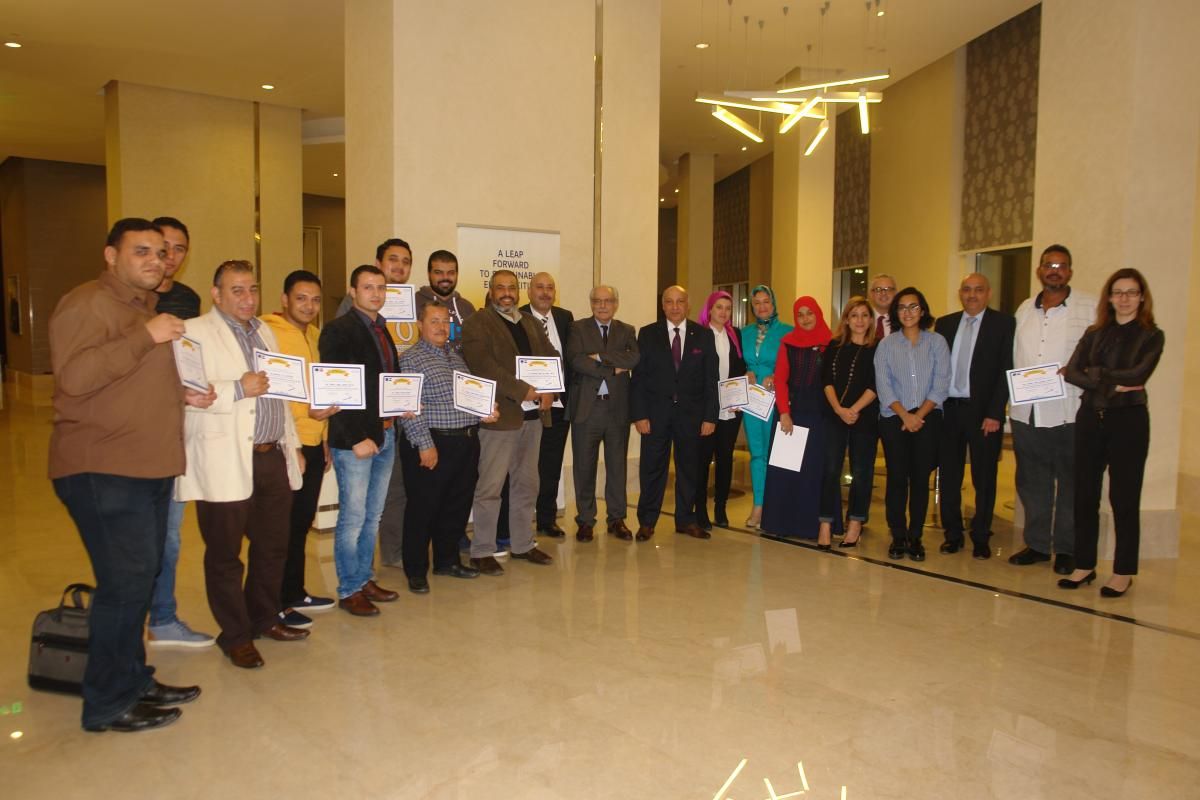CES-MED held a Training of Trainers workshop for representatives of New Urban settlements in Egypt

The CES-MED team held a Training of Trainers (ToT) workshop on the 3rd and 4th of December in Cairo, Egypt, titled “Technical steps for the preparation of Sustainable Energy and Climate Action Plans (SECAPs)”.
This workshop was developed specially for representatives of the cities affiliated to the New Urban Community Authority (NUCA), the Ministry of Housing, the Egyptian New and Renewable Energy Authority (NREA) and the Ministry of Electricity and Renewable Energy.
Trainees represented the cities of new urban settlements in Egypt, some of which exceeded in its population 5 million inhabitants and 1.5 million daily dwellers such as the Greater 6th of October City, thus representing a total population of about 10 million, including the New Administrative Capital.
A welcoming note was first given by the representative of NUCA’s president, in which full support to CES-MED action was expressed.
Trainings proceeded along two full days and covered: developing the SECAPs (Planned actions and Priority Project fiches); establishing a Baseline Emission Inventory methodology; introducing the Covenant of Mayors and its objectives; explaining awareness raising and communication concepts and levels of intervention on defining targets, visions, message and tools; introducing financing sources for investments within the Priority Action Fiches and other entries showcasing the National Recommendations Report prepared for Egypt.
The ultimate objective of the training was to introduce the Sustainable Energy and Climate Action Plans (SECAPs) and give a contextual overview of the methodology to the participants and share the implemented experience of the two affiliated governorates to the project, the Red Sea and Luxor, which have already prepared their SECAPs.
The CES-MED project is an EU-funded regional initiative set up to provide training and technical assistance support to local and national authorities in the southern Mediterranean region, with a view to helping them respond more actively to sustainable policy challenges.
CES-MED ensures that the actions proposed match with the objectives of the Covenant of Mayors: to reach and even go beyond the European objective to reduce CO2 emissions by 20% thanks to the improvement of energy efficiency and the increased use of sustainable energy.
Read More



























 Syria
Syria 



